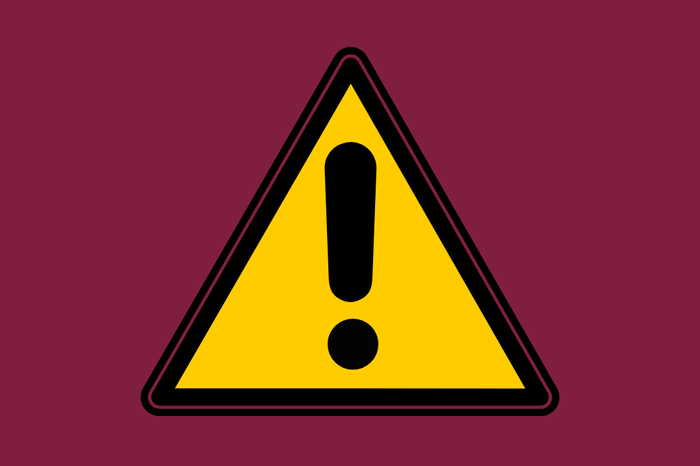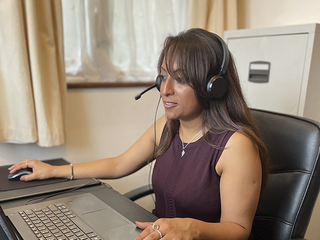What does the three-tier system mean for people shielding in England?
We outline what the current Government advice and recommendations are for people with blood cancer in each alert level under the new three-tier system.

On Tuesday 13th October, the Government set out new guidance for people in England considered to be clinically extremely vulnerable as cases of the coronavirus rise. The guidance suggested that blanket shielding will not be re-introduced as it was back in March, but people considered to be clinically extremely vulnerable, including people with blood cancer, should take extra precautions.
Across England only, there are now three ‘alert levels’ which are: medium, high and very high. The level will depend on where you live and the advice changes slightly for people who are clinically extremely vulnerable depending on this. Find out what your local alert level is. Scotland, Northern Ireland and Wales have their own advice on local restrictions.
Medium alert level – tier 1
The majority of the UK are currently in this category. For those clinically extremely vulnerable who live in an area that has a ‘medium’ alert level, the Government recommend that you follow the general advice for the population with some additional precautions. These are:
- Do not meet people in groups of more than six (general advice).
At this level, the advice for the general population is to not meet in groups of more than six people. In addition to this, the Government are advising those who are clinically extremely vulnerable to maintain social distancing when meeting people. Also, to meet people outside, if possible, and to keep the number of different people you are interacting with overall to a minimum. (i.e. try not to see six people on Monday and an entirely different six people on Tuesday).
- Work from home, if possible (general advice).
- Limit journeys on public transport, if possible (specific advice for clinically extremely vulnerable).
- Consider going to the shops at quieter times of the day, and maintain social distancing when there (specific advice for clinically extremely vulnerable).
High alert level – tier 2
- At this alert level, people aren’t allowed to meet with people indoors, in any setting, unless they are part of your household or support bubble (general advice).
- You are still allowed to meet people not in your household, outdoors, in groups of six. Although, the Government recommends those who are considered clinically extremely vulnerable to keep this to a minimum.
- Work from home, if possible (general advice).
- Avoid travel, where possible (specific advice for clinically extremely vulnerable).
- Consider going to the shops at quieter times of the day, and maintain social distancing when there (specific advice for clinically extremely vulnerable).
Very high alert level – tier 3
The Government advice for the clinically extremely vulnerable is to:
- Stay at home as much as possible apart from going out for exercise (specific advice for clinically extremely vulnerable).
- Work from home. If this isn’t possible, speak to your employer about taking an alternative role or changing your working patterns to avoid peak travel times (specific advice for clinically extremely vulnerable).
- Avoid travel, where possible (specific advice for clinically extremely vulnerable).
- Reduce shopping trips as much as possible and shop online. If you have to go, go at quieter times (specific advice for clinically extremely vulnerable).
Shielding for those living in 'very high' alert areas
The Government have said that shielding, as it was back in March, may only be reintroduced in areas that are worst affected – this will only be for a limited time. This may include some, but not all, people in areas considered to have a ‘very high’ alert level (tier 3). Although, currently, no areas at a ‘very high alert level’ are asking the clinically extremely vulnerable to shield, if this were to change, the Government have said that you will receive a letter informing you to shield.
While the advice is not to shield – unless you receive a letter – we know from the previous wave that it can take time to receive letters. We would advise anyone with blood cancer to take extra precautions if they live in a ‘very high’ alert level and minimise social contact as much as possible.
What happens if shielding is re-started in my area?
If shielding is re-started in your area, you will receive a letter which will contain further advice. The Government have said that if shielding is re-started, and you cannot work from home, then you should not attend work. You may also be eligible for Statutory Sick Pay or Employment Support Allowance.
We think it’s wrong that the Government is still expecting people who cannot work from home to carry on working in 'very high' risk areas where shielding has not been re-started. We're calling for the Government to offer people with blood cancer financial support, as we fear that this could be putting people who work in busy workplaces at risk. We will continue to speak to NHS England and the Government so that people who are clinically extremely vulnerable are supported to shield if they take the decision to.
We understand that it’s a difficult time for our community. If you’re struggling, you can call our free and confidential helpline on 0808 2080 888.

Worried about anything or have questions?
If you need someone to talk to, please don't hesitate to contact our Support Service by phone or email.
